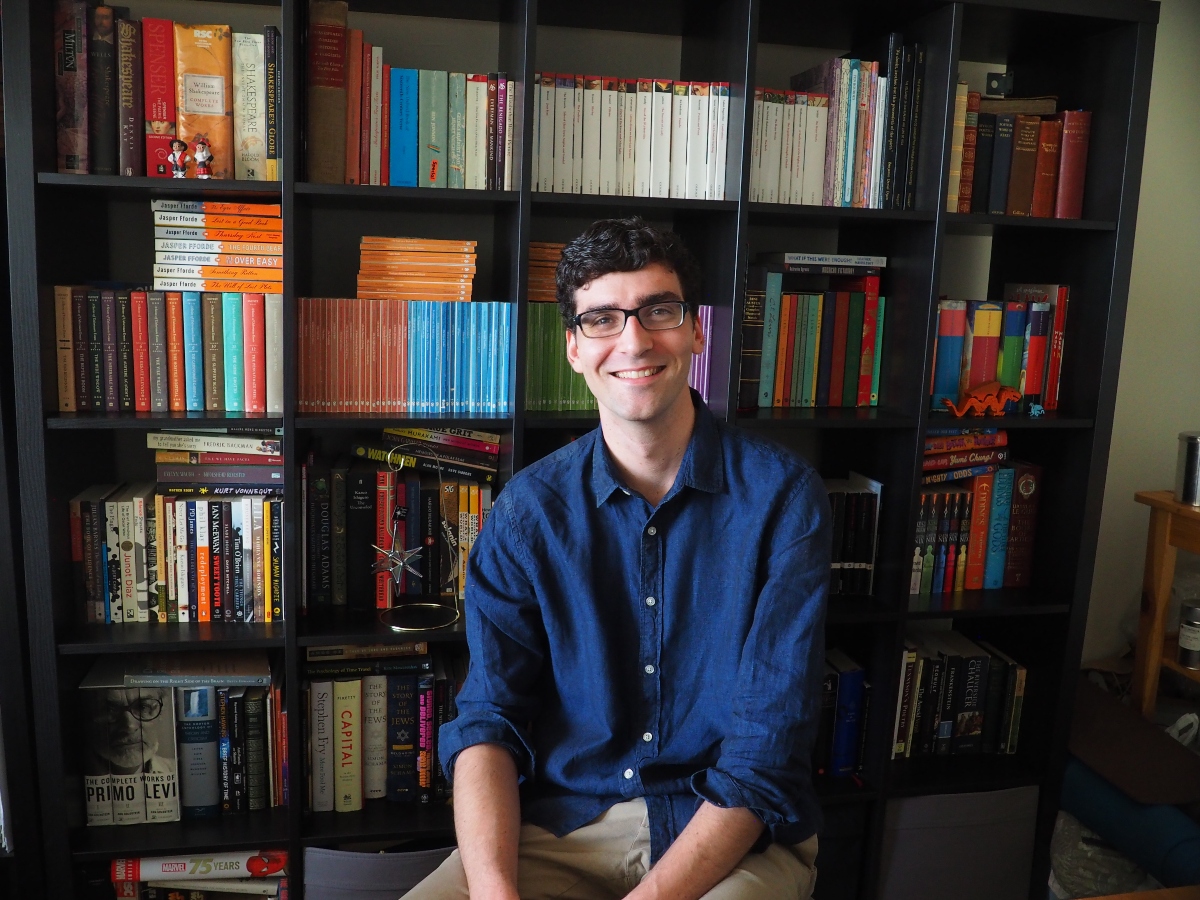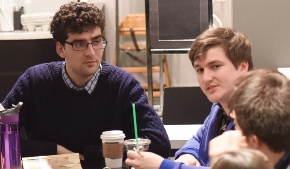EGO Alumni Interviews: Dr. Benjamin Djain

by Fletcher Bonin (current M.A. student)
After completing his dissertation in 2019, Dr. Benjamin Djain secured a position as a Professional Lecturer in the Writing Program at nearby American University. A comparative early modernist, he focuses on English and Spanish theatre. He was kind enough to answer a few of CUA EGO’s questions about his experiences both current and past.
Had graduate study/academia always been in your plans, or was there an inciting incident somewhere along the way that led you to want to become Dr. Djain?
Graduate study had not always been in my plans. I did enter the University of Auckland determined to pursue a humanities degree and teach, largely because of the influence of my high school English teacher, who was a former academic (a specialist in Browne and Milton from Sri Lanka who taught in the US – we still talk on the phone regularly).
However, I didn’t think I was good enough to pursue a graduate degree, let alone a doctorate. It was a series of conversations with one particular graduate student instructor in office hours and cafés that convinced me to “just keep going since you like it.” My subsequent progression to the PhD is a kind of comedy of errors. I was only starting my one-year MA when I was advised that, if I wanted to complete a PhD and get a job, I should be applying for doctoral programmes globally. It was a mad scramble. Nonetheless, I think my story really does show that the experience of being transformed by good teaching is a cliché for a reason.
Seeing as you have experienced graduate study outside of the US, did you perceive any notable or significant difference between academia in the States and that of Auckland?
There are significant differences. New Zealand operates under a model that resembles the British system. In my case, I was already out of coursework in New Zealand by the time I started my research only MA and I was being prepared to embark on a three-year research only PhD. I had to adapt quickly to doing coursework again. I remember several faculty members in New Zealand telling me that studying in the US system would make me more flexible as a teacher and a scholar, some waxing poetically about the reading period that preceded their comprehensive examinations. I tried my best to recreate that experience for myself at CUA, including ensuring that I started my reading and preparations for my comprehensive exams twelve months in advance. Some of my fondest memories are reading through the entire Norton Anthology of Theory and Criticism in preparation for those exams. Having already experienced the delicate balance between research and teaching in New Zealand helped me complete the dissertation. I’m glad I got to experience both systems.
What first drew you to the English graduate program at CUA?
It’s a fun story actually. Conventionally, students applying for graduate programmes internationally start with the big lists of top universities that are published by QS and Times Higher Education. As I was finalising my places to apply to, my dad asked whether his alma mater had an English programme—he had done his architecture degree at CUA. I looked up the programme and saw they had a couple of people with research interests that broadly aligned with what I wanted to do. I thought I would try and apply and I’m glad that I did.
Are there any particularly fond memories that stand out from your time at CUA that you’d like to recall here?

I am contractually obligated to say that I met my wife in the English PhD programme at CUA. We grew close over several iterations of EGO drink nights. It is honestly those moments when the department comes together as a community and talk that are most dear to me. I enjoyed being a graduate student when we were at our most lively. Wonderful moments such as “Don’t you know that romanticism is wrong?” (It’s not. Objective fact), a short story on walruses, and a report on the graduate senate’s argument over the colour of polo shirts were a particular highlight. I also loved English Society Book Discussions for the same reason. We didn’t pull any punches.
What was your job search like, and how did you end up at American University?
The academic job market is difficult for absolutely everybody. I applied globally to 105 academic jobs over the course of two semesters and received three interviews. Dr. Okuma provided a great deal of support in the initial preparations of my job materials. However, it’s important to constantly tweak the materials as you start to learn more about the kinds of places you’re applying to and what your strengths are as a candidate. Crucially, it was the refinements that I made to my materials after a semester of applications that started to get me more interest from potential employers. Treating the job search as an adventure, being flexible in my approach to my job materials, and being willing to value myself and what I’ve achieved in the programme if that academic job doesn’t happen were all crucial to my mental well-being. I think I ended up at American University because several factors aligned themselves all at once. I was local, which made it possible for them to interview me in person, I had a wide range of teaching experience in both literature and writing, and I had built up some administrative experience. I feel incredibly lucky to be working in my job at American University.
